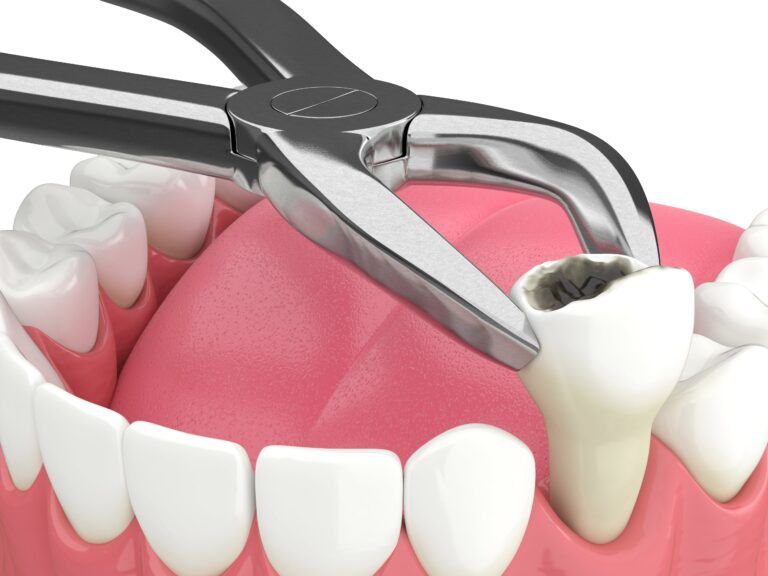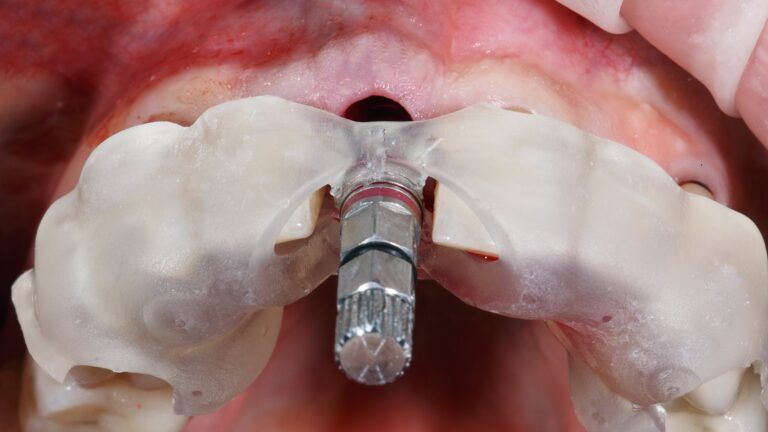Are you considering getting veneers? If so, you may be wondering what kind of veneers to get. Porcelain veneers and composite veneers are both popular options, but which one is right for you? Read on to learn more about veneers in general, as well as the benefits of choosing porcelain veneers over composite veneers.
What are veneers and what can they fix?
Veneers are thin shells that are fixed to the front of the teeth to cover up a multitude of imperfections. This cosmetic dental procedure can solve issues such as:
- Damage, such as chips or cracks in the enamel
- Eroded enamel due to diet, genetics, or medications
- Spacing problems such as gaps between the teeth or overlapping teeth
- Stains due to diet, genetics, medications, or age
- Tooth sensitivity due to exposed dentin and/or eroded enamel
- Uneven smile due to unevenly shaped or sized teeth

What are composite veneers?
Composite veneers are a type of dental veneer that help alter the appearance and shape of your teeth. Composite veneers are made from a mixture of resin and glass, known as dental composite. To apply composite veneers, your dentist will use a putty-like resin that is directly applied and molded to your existing teeth. This approach allows cosmetic dentists to custom-design each tooth’s color, shape, and size, giving you the freedom to create a unique edge to your smile.
This minimally invasive procedure can be completed in a single office visit. In fact, composite veneers are known as a direct restoration, since they are fabricated entirely inside the mouth. While this makes their placement faster, it is important to note that composite veneers are made from the same material as composite fillings. This ultimately means that they only have a lifespan of about 5-7 years.
What are porcelain veneers?
Porcelain veneers are a type of dental restoration used to efficiently address aesthetic and structural issues with your teeth. They are made of thin shells of porcelain that are custom-crafted to match the size, shape, and color of the surrounding teeth. Not only can porcelain veneers improve your smile, but porcelain is also stain-resistant, extremely durable, and looks far more lifelike than composite.
Porcelain veneers also differ from composite veneers in that they are considered an indirect restoration. This means that your dentist will need to take an impression of your teeth and then craft the veneers outside of the mouth. Once they are complete, your dentist will bond them to your existing teeth. This approach also allows for more precise customization, as well as longer lasting results that can last up to 15 years with proper care. However, this can also mean that 2 or more appointments may be needed to get porcelain veneers. Additionally, since porcelain is thicker than composite, a thin layer of enamel may also need to be removed to allow for porcelain veneer placement.
Benefits of Porcelain Veneers
Although both types of veneers can correct structural issues with the teeth, there are several differences between each type. It is important to consider these differences to determine which option suits you. There are several benefits of choosing porcelain veneers over composite veneers. These include:
Durability:
Porcelain is an extremely durable material and can last up to 15 years with proper care. Even with proper care, composite veneers can only last an average of 5-7 years. While many people choose composite veneers for their initial affordability, they often end up spending more money over time due to the fact that composite veneers need to be replaced almost three times as fast.

Appearance:
Porcelain veneers are more lifelike in appearance than composite veneers. This is due to a few different factors. First, the color of porcelain can be customized to match the desired look. Secondly, porcelain reflects light in the same way that real teeth do. Finally, porcelain is thicker than composite, which allows it to completely conceal the underlying tooth. Composite veneers, on the other hand, are thinner and may allow the underlying tooth to show through. Not only that, but composite lacks the same translucency as porcelain.
Stain resistant:
Porcelain is resistant to staining and discoloration, which means that you do not have to worry about your veneers becoming yellow or stained over time. This is because porcelain is not porous and does not absorb colored pigments. Tooth enamel is porous, which is why natural teeth can become stained after years of absorbing colored pigments from foods and beverages. Dental composite is also porous, meaning that composite veneers can also become stained over time.
Strength:
Porcelain is much stronger than composite and is more resistant to wear and tear. In fact, porcelain is a 7 on the Mohs hardness scale, whereas composite is only a 5. For references, tooth enamel ranks as a 5-6. This strength makes porcelain ideal for people with a higher risk of chipping or cracking their teeth due to bruxism or other similar habits.
How to Choose Between Composite or Porcelain Veneers
Choosing between composite or porcelain veneers is a complex decision, as each type of veneer has distinct advantages and disadvantages. However, there are several more benefits associated with porcelain veneers.
Here is a table comparing composite and porcelain veneers:
| Feature | Composite Veneers | Porcelain Veneers |
| Material | Resin and Glass | Ceramic |
| Durability | Lower | Higher |
| Resistance to Stains | Lower | Higher |
| Appearance | Good | Excellent |
| Maintenance | Easy | Moderate |
| Cost | Affordable | Expensive |
| Placement Time | Single Visit | Multiple Visits |
Note: The information presented in the table is a generalization and may not apply to all cases. The best way to determine which type of veneer is right for you is to consult with a dental professional.
In Conclusion
Both composite and porcelain veneers have their advantages and disadvantages. However, porcelain veneers are generally considered the superior option due to their increased durability, stain resistance, strength, and lifelike appearance. Ultimately, the best way to choose between composite or porcelain veneers is to consult with a qualified dental professional who can fully evaluate your needs and help you make the decision that is right for you. For more information, schedule a consultation at New Teeth Chicago Dental Implants today!

Irfan Atcha, DDS, DICOI, DADIA at New Teeth Chicago Dental in Chicago, Illinois is a board-certified general dentist and a nationally recognized expert in dental implants, cosmetic dentistry, and sedation dentistry. Dr. Atcha is now serving patients in Naples, Bonita Springs and SW FL area with All-on-4 implants, teeth-in-a-day, same day dental implants and the complex zygomatic dental implants for the no-jaw bone solution approach. To schedule a consultation please email Dr. Atcha at teethforyou@gmail.com.





